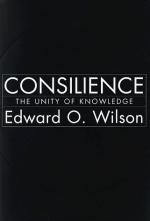
|
| Name: _________________________ | Period: ___________________ |
This test consists of 5 multiple choice questions, 5 short answer questions, and 10 short essay questions.
Multiple Choice Questions
1. What does Wilson call the discrete pieces of evidence?
(a) Atomic evidence.
(b) Nitty gritty facts.
(c) Researching molecules.
(d) The raw materials.
2. What did Condorcet pioneer?
(a) The development of statistical models for economics.
(b) The notion of innate human rights.
(c) The application of statistics to politics.
(d) The application of math in social science.
3. What does science seek, in Wilson's account?
(a) Probably hypothesis.
(b) Interesting hypotheses.
(c) Objective truth based on hypothesis.
(d) The mind of God.
4. How does Wilson characterize the current state of knowledge?
(a) Interconnected.
(b) Unified.
(c) Fragmented.
(d) Irreconcilable.
5. How are scientific theories constructed and used within the scientific community, in Wilson's account?
(a) They are made to define eternal laws.
(b) They sketch but never define natural phenomena.
(c) They can be discarded if disproved.
(d) They rely on intuition as much as observable results.
Short Answer Questions
1. What does Wilson say he was searching for as a young man?
2. What does Wilson say matters in science?
3. Under what circumstances are theories accepted universally?
4. What does Wilson say we discover when we link social sciences, biology, ethics and environmental policy?
5. Whose ideas influenced the formation of the French slogan "Liberty, Equality, Fraternity"?
Short Essay Questions
1. How would you describe Condorcet's influence on Wilson's idea of consilience?
2. Why does Wilson cite Einstein as an example of someone who practiced consilience?
3. What is the modern understanding of dreams?
4. How has postmodernism affected Wilson's consilience?
5. How does Wilson describe what it is possible to know about the brain?
6. How is Wilson's theory a consequence of evolutionary theory?
7. What is the relationship between complexity theory and consilience?
8. What is the modern understanding of how the brain works?
9. How would you describe Rousseau's influence on Wilson's idea of consilience?
10. How did Wilson arrive at his theory of consilience?
|
This section contains 752 words (approx. 3 pages at 300 words per page) |

|




